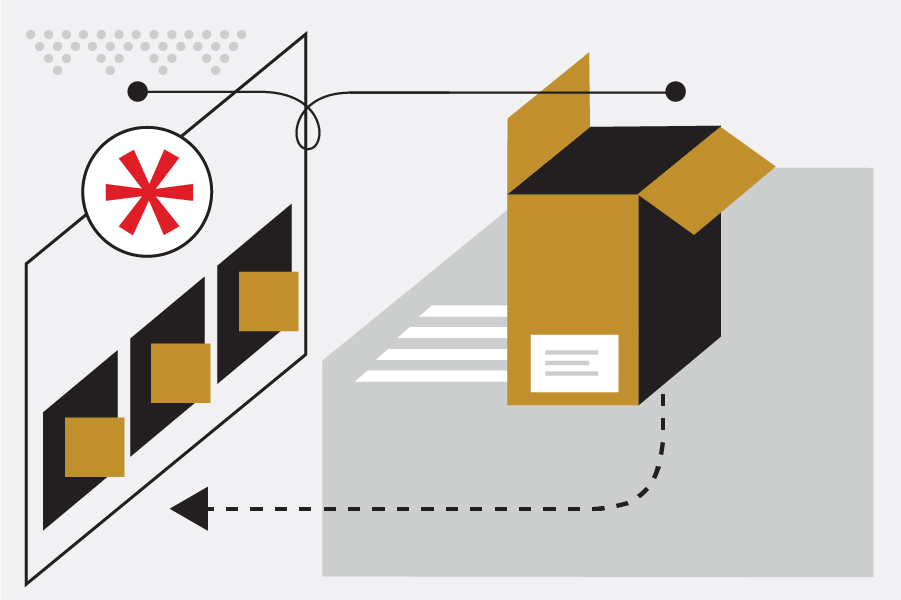Logística de Transporte
Industrias

We’ve said it before on this blog, and we’ll say it again; returns are simply a part of doing business in ecommerce.
The ‘right to return’ is now deeply embedded into the culture of online shopping, and consumers expect to be able to return items without fuss. According to Invespcro, 92% of consumers say they would buy from a retailer again if they offered an easy returns process.
But ‘easy’ returns require more than a generous returns policy; this also extends to initiating the return itself - and packaging plays a key role in whether the returns experience is positive or negative.
So, how can you make returns as easy as possible for your customers? By supplying them with return-ready packaging.
Return-ready packaging refers to packaging types that are designed with secondary usage in mind. Namely, for customers to send items back to the warehouse in the case they’re damaged, faulty, or not suitable for their needs. This offers increased convenience to customers and more certainty that goods will be returned in a resellable condition.
Using containers with multiple adhesives avoids your staff needing to use yards of tape to seal boxes, saving both time and resources. Furthermore, it minimizes the odds of damage occurring when opened, making it easier to use containers for multiple orders. This includes:
You also need to consider whether the containers you’re using are sturdy enough to handle multiple trips through transit. Otherwise, there’s the possibility of items arriving damaged at your customer’s home or at your warehouse. Consider using the following:
Note: It’s important to include instructions so that customers don’t throw out your return-ready packaging by mistake!
Put yourself in your customers’ position for a moment. You’re ordered a garment online, but discover when it arrives that the color is different than what you expected. Fortunately, the policy allows you to return the item within 30 days, no questions asked. You’re even provided with a return shipping label.
However, the garment was packaged in a poly mailer which you’ve had to rip open, meaning it’s now unusable. To complete the return, you have to go through the hassle of sourcing (and paying for) return packaging.
Suddenly, that ‘easy’ return isn’t so easy anymore - and that’s a major annoyance for your customers. According to Return Logic, 62% of consumers are frustrated by having to pay for return packaging or shipping.
By providing return-ready packaging that your customers can use right off the bat, you’ve made it much easier to navigate the returns process - creating a much more positive experience with your brand.
It’s no secret that ecommerce has a severe environmental impact due to the high carbon emissions required to deliver packages to people’s homes.
Another reason? High quantities of non-recyclable and non-reusable packaging.
When we receive an online order, throwing out its packaging is one of the first things we do. Why? Because it no longer serves a purpose. With this state of affairs, it’s hardly surprising that packaging is responsible for a third of all household waste in the United States.
If your packaging can’t be used to return items, your customers waste valuable resources by getting more - something that is entirely avoidable.
If your design is robust enough, packaging from returned orders can be reused for new orders when it arrives at your facility. For example, packaging garments inside resealable ziplock bags offers considerable reuse capabilities to both your customer and your fulfillment operation.
In sum, return-ready packaging can save your business considerable money and resources by creating a closed loop of reuse within your supply chain.
Packaging is a very strategic decision in ecommerce. In addition to dictating how items are protected in transit, it has a major impact on your shipping costs.
With all major carriers now using dimensional weight to determine parcel rates, this means that both size AND weight matters. The answer? A compact, lightweight packaging design that keeps your costs as low as possible.
But while you can control the shipping costs of outbound parcels, this is more difficult for returns management. If your customers have to source packaging themselves, this can cause a lot of problems.
For example, if customers don’t package goods securely enough, they could arrive at your facility damaged. It’s also difficult to estimate how much return shipping will cost your customers, as you don’t know the dimensions of the package they’re sending you.
Furthermore, non-standard packaging could jeopardize pre-paid shipping labels (USPS, FedEx, and UPS all require merchants to state the packaging type being used). If your label is unusable, you’re going to get a lot of customer complaints.
One of the biggest advantages of return-ready packaging is that it allows you to standardize the returns process - preventing you (or your customers) from any nasty surprises!
When it comes to returns management, even the smallest details can make a huge difference to the overall experience. With consumers demanding an easy returns process like never before, return-ready packaging is one of the greatest tools at your disposal to strengthen your value proposition to online customers. Better packaging means better returns flows - which equals more efficient reverse logistics for your business.